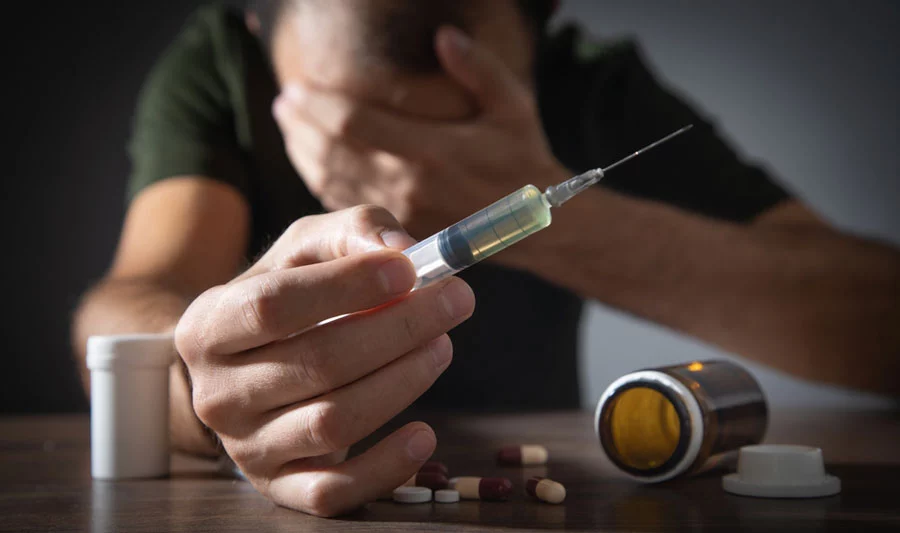What Is Medication Assisted Treatment?
You may not have heard the term “Medication-assisted treatment” before, but it is something that’s revolutionary in treating substance use disorders. Medication assisted treatment along with behavioral therapy is used to help clients overcome drug dependence.
According to a recent major study, medication-assisted therapies (MAT) are beneficial in assisting substance abuse clients in achieving improved results, particularly for alcohol and opioid use.
Keep reading to find out about how Catalina Behavioral Health incorporates MAT therapies in our programs, and get effective help for your struggles!
24 Hour Medical Detox Hotline
What Drugs Are Used In Medication Assisted Treatment?
Three FDA-approved drugs including buprenorphine, methadone, and naltrexone are used in Medication-assisted Treatment. In conjunction with counseling and psychological support.
Any client that wants treatment for their substance use disorder must be given all three alternatives, allowing physicians to collaborate with clients to choose the treatment that is most suited to their requirements.
Even though these drugs have been approved by the FDA, and therefore, are safe for consumption, all these drugs do possess side effects of their own. The treatment plan varies from patient to patient and largely depends on different biological, social, and environmental factors.
What works for you might not work for someone else. The pros and cons of the treatment should be weighed and discussed with your physician before committing to any plan.
Medications that are used for opioid use disorders include:
- Methadone: reduces the high from opioid usage as well as the cravings.
- Naltrexone: reduces the sedative effects of opioids.
- Buprenorphine: used for suppressing a client’s craving for opioids.
What Are the Benefits Of Medication Assisted Treatments?
Overdose fatalities involving opioids increased from 21,088 in 2010 to 47,600 in 2017, then stayed stable in 2018 at 46,802. This was accompanied by a considerable rise in overdose deaths, which rose to 68,630 by 2020.
Clinical studies have repeatedly shown that Medication-assisted Treatment is medically beneficial and dramatically reduces the requirement for inpatient detoxification treatments for these people.
Most clients’ requirements are met by MAT, which is a more thorough, personally planned combination of medication and behavioral treatment.
Apart from decreasing the rates of opioid addiction, Medication-assisted Treatment has also demonstrated increased rates of survival of clients and reduced the use of illegal opiates and other criminal behavior among individuals who have drug abuse problems.
It is also known to increase the rate of retention in treatment, improve the ability of clients to find and keep jobs, and has also significantly improved the birth rates of women who were battling substance use disorders.
These drugs and therapy have also been shown, according to research, to reduce the risk of getting HIV or hepatitis C by lowering the likelihood of recurrence.
Would Medication-Assisted Treatment Work For Me?

Before answering whether Medication Assisted Treatment would work for you or not, we need to know why it works in the first place. When it comes to substance use disorder, most approaches rely on the “Abstinence-only” recovery model. Here the main focus is put on just refraining your body and mind from taking drugs again.
Unsurprisingly, this model has a very low rate of success when it comes to cases of substance use disorders where the severity is significantly higher.
In fact, abstinence-only models do more harm than good to opioid use disorder clients, as they do not take into account the chemistry behind drug addiction. Medications that ease cravings and withdrawals don’t fit easily into an ‘abstinence or nothing’ model, but help saves lives and lead clients into lasting recovery.
Managing Withdrawal through MAT Approaches
Most of the time people become addicted to opioids through prescribed drugs. Imagine if you just got out of knee surgery and the pain of recovery is unbearable.
The doctor prescribes you painkillers that work for a while but then stop working, so you have to increase the dose for it to be effective. Before you can even realize it, you’ve become addicted to drugs.
That’s how the story goes for most people, and it’s not easy to just quit cold turkey either.
The use of opiates dramatically changes a person’s brain chemistry. The drugs used in medication-assisted treatments restore normal brain chemistry preventing the high of alcohol and opioids. They also help to alleviate biological urges and restore normal body functioning without the side effects of opioids.
Since the withdrawal symptoms are, more often than not, very severe in opioid use disorders, the primary focus of medication assisted therapy is 100% recovery for all clients.
Medication Assisted Treatment
Myths and FAQ’s About Medication Assisted Treatment
Abstinence Is Better Than MAT
Abstinence-only therapy has shown to have a greater overdose, as well as, relapse rates than medication-assisted treatment. Many folks who have been addicted to opioids are familiar with the intense withdrawal symptoms that appear during medical detox.
Exhaustion, depression, low hunger, and sleeplessness are among the long-term effects that might appear weeks or months after detox. Opioids, such as methadone or buprenorphine, are used to prevent these long-term effects that can lead to relapse.
Medication-Assisted Treatment Is Too Expensive
You might think that MAT would be too expensive since just getting a ride into an ER in an ambulance, in most parts of Arizona, can cost thousands of dollars. Compared to that, medication-assistive forms of therapy can seem like a bargain.
MAT is quite a cost-effective treatment when you take into account all the time that you would be saving when you factor in the lower relapse rates.
Medication-Assisted Treatment Is Harmful to Pregnant Women

This is a very common and very dangerous misconception about MAT. Not only is MAT safe for women but, in fact, MAT is recommended to pregnant moms with an opioid use disorder by medical professionals.
Studies show that women who are on medication-assisted forms of treatment suffer significantly fewer birth defects and disorders than those women with OUD who are not on MAT.
While nursing, women can take methadone or buprenorphine. The Association of Women’s Health, Obstetric, and Neonatal Nurses (AWHONN) recommends that all women using MAT be encouraged to breastfeed because only trace levels of these drugs enter into breast milk.
The advantages to the newborn greatly exceed the minor dangers of the baby taking trace doses of medicine.
Medication-Assisted Treatments are a Short-Term Solution
The National Institute on Drug Abuse (NIDA) has found a significant amount of evidence that MAT is indeed an effective treatment for those with an OUD (Opioid Use Disorder).
Methadone maintenance is more successful than detoxification-based therapy, according to one of the most persuasive arguments for long-term MAT.
Participants in MAT therapy can continue to use methadone or buprenorphine as long as the medicine is effective. Before you start therapy, talk to our clinicians at Catalina Behavioral Health about how long you plan to take the drug.
Short-term therapy and weaning off work for some people, while others require longer time. Your doctor can assess the degree of your addiction and recommend a treatment period that is appropriate for you.
Bargaining One Addiction for Another

When you think about it, medication-assisted treatment really just seems like you are trading one addiction for another. I mean, in both cases you are still consuming drugs.
In most cases, you have to take medications like methadone or buprenorphine every single day as part of your treatment. Then why is one addiction better than the other?
Although it can seem like an addiction since you have to take the medication every day, what people fail to realize is that the overwhelming drug-seeking desires that define addiction are lessened or eliminated when someone can stop using a substance that makes them euphoric without feeling withdrawal.
There is no intoxication among the participants. They are no longer abusing drugs, and the medicine helps them maintain the mental and emotional stability needed to participate in other areas of rehabilitation.
Mild Or Moderate Addiction Does Not Require Mat
If your addiction is not what the DSM considers “severe”, then you might be thinking that it does not warrant a medication-assisted form of treatment. That idea is highly inaccurate as all levels of addiction require therapy.
Now, you may choose to get therapy that is not necessarily MAT based on your own personal preference. However, the data is there to support that MAT is effective in all opioid use disorder cases, whether mild or severe.
As long as a person is experiencing withdrawal symptoms, Medication-assisted treatment is a stable resource in helping to manage and completely eradicate the withdrawal symptoms in most cases.
MAT Is Not Total Recovery
It’s a common misconception that buprenorphine or methadone therapy is nothing but a hindrance to true recovery as it stops a person from being fully rid of all drugs in their life. This reflects the misunderstanding when it comes to what it means to fully recover from addiction.
A person who is enslaved by their addiction loses most of their ability to function in daily life.
Doing simple everyday tasks can seem like climbing Everest. But when the horrifying reality of withdrawal is taken away thanks to MAT, the drug-seeking drive is considerably reduced or eliminated.
And when someone can quit taking heroin or other opioids without experiencing devastating bodily symptoms, it enables them to reintegrate into society and establish stability. This should count fundamentally as “true” recovery.
Medication-Assisted Treatment for Alcohol Use Disorders

MAT is very commonly used in Alcohol Use Disorders since medications such as these help clients to quit drinking by minimizing or managing their withdrawal symptoms. It helps to maintain lasting recovery as well. The drugs commonly used for MAT for managing AUD are as follows:
Acamprosate: It seeks to keep individuals from drinking alcohol, but it doesn’t keep them from experiencing withdrawal symptoms when they do. It has not been demonstrated to work in clients who regularly drink alcohol or use drugs recreationally.
Disulfiram: This medication is used to treat persistent alcoholism and is best successful in persons who have previously completed detox or are in the early stages of sobriety. Disulfiram, which comes in the shape of a pill and is used once a day, should never be taken while inebriated or for at least 12 hours after consuming alcohol.
Naltrexone: It primarily works on the inhibition of the pleasurable effects and sensations resulting from alcohol consumption, allowing individuals with alcohol use disorders to cut back on alcohol use while taking the drug, remaining in treatment, and preventing relapses.
What are the Draw-Backs Of Medication Assisted Therapies?

Although MAT is helpful, many people are unable to benefit from it. One issue is that MAT medicines have been sluggish to become available in treatment programs. Only half of the private-sector treatment programs said their doctors used FDA-approved medications.
Limited insurance coverage and a scarcity of skilled medical staff are two major roadblocks to the use of MAT. A key aspect of the treatment gap is the shortage of approved buprenorphine prescribers for the treatment of OUD, both nationwide and in Arizona.
Rest assured that Catalina Behavioral Health is committed to fully supporting this crucial form of therapy and will provide top-level services for you or your loved one.
Start Healing Now
Find Long Term Recovery with MAT & Catalina Behavioral
According to an article published by the National Institute on Drug Abuse, long-term recovery is indeed a possibility with the support of medications designed to augment your sobriety.
While medication-assisted Treatment is not an “end all, be all” solution, it’s still a viable option for those who are struggling with hellish withdrawal symptoms. MAT gives a chance for people to take back control of their lives and become better parents to their kids, better partners to their significant other, and better workers in their field, and helps them realize their full potential.
If you are struggling with alcohol or opiates, and interested in finding out more regarding Catalina’s programs for treatment, please don’t hesitate to reach out for help. Our welcoming Admissions team is waiting for your confidential call, so please give yourself a break and get the assistance you need and deserve!





